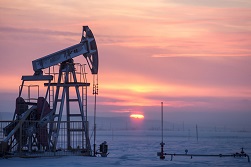- Home page /
- News /
- Company news /
- BP Russia president vows company will keep investing in...
BP Russia president vows company will keep investing in Russian oil and gas projects
 |
| Courtesy of tass.com |
Russia’s oil and gas industry is developing successfully in spite of the Western sanctions, BP Russia President David Campbell said in an interview with TASS at the International Forum "Arctic - Territory of Dialogue" in Arkhangelsk.
BP, which holds almost 20% in Russia’s largest oil company Rosneft, plans to continue making investments in the country, Campbell said.
"We have worked with many sanctioned regimes all of the world and for many years. As long as we comply with these sanctions, we can still work, we still intend to work. I am very confident that within the sanction regime, in areas we were committed to work we will invest. There have been some changes but the industry, as it always does, accommodates to those changes. The Russian production has grown through this period, activity has increased driven partly by reduced ruble and the costs of projects have reduced. So within the rules we always work as we can," he said.
Earlier the EU’s General Court declared that the sanctions Brussels had imposed against several Russian companies including Rosneft due to the situation in Ukraine are grounded. This decision may become a foundation for handing down a similar verdict on the lawsuit Rosneft filed to the High Court in London. It also sets a precedent on verdicts to lawsuits by other Russian companies.
Rosneft disputed the sanctions that were imposed in 2014 against the oil sector and restricted the supplies of goods and services required for conducting deep-water explorations in Russia’s Arctic region. The sanctions also limited financing prospects and hampered stock trades of several Russian companies including Rosneft. Similar measures were imposed by the US.
Campbell said that "there are certain types of projects that are captured by the sanctions and prevent from working." Working in some areas is impossible until restrictions are removed.
"There are financial sanctions, which restrict borrowing. But we have seen some changes there. We have seen more investments from the East, more borrowing from Russian banks and less from foreign banks," he said.
Source: tass.com

